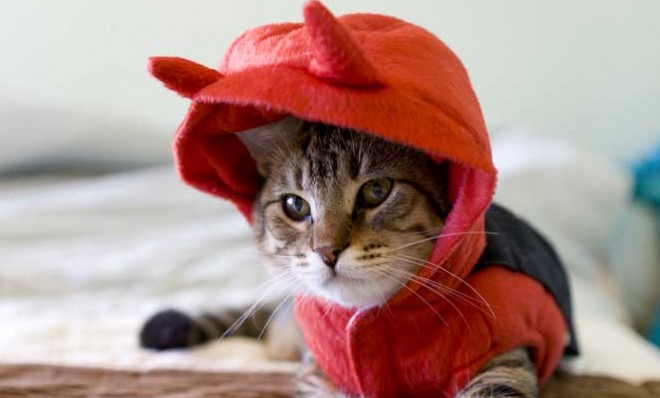A New Zealand man's bizarre plan to rid his country of cats
Kitties are murderous predators threatening the island nation's dwindling bird population, argues a passionately anti-feline conservationist

A free daily email with the biggest news stories of the day – and the best features from TheWeek.com
You are now subscribed
Your newsletter sign-up was successful
"That little ball of fluff you own is a natural born killer," writes New Zealand businessman and preservationist Gareth Morgan at his website, which is the focal point of a new campaign to protect the country's endangered birds by asking cat owners not to replace their beloved felines when they die. Naturally, Morgan's "Cats To Go" crusade isn't exactly popular — some estimates peg New Zealand as having the highest rate of cat ownership in the world — and now he's facing a fierce wave of criticism from kitty lovers. Here's what you should know:
First off: What's happening to New Zealand's birds?
For a long time, New Zealand's birds thrived. The country is basically on its own geographically, some 900 miles off the southeastern coast of Australia. And tens of millions of years of isolation have, for whatever reason, eliminated many of the country's native mammals, thus allowing for strange, oftentimes beautiful species of birds to flourish. That's why New Zealand has some of the most unique birds in the world, says Alex Hern at the New Statesman. Unfortunately, Mother Nature has rendered many of them quite clueless.
The Week
Escape your echo chamber. Get the facts behind the news, plus analysis from multiple perspectives.

Sign up for The Week's Free Newsletters
From our morning news briefing to a weekly Good News Newsletter, get the best of The Week delivered directly to your inbox.
From our morning news briefing to a weekly Good News Newsletter, get the best of The Week delivered directly to your inbox.
How are the birds clueless?
They're not very smart, and many simply don't have the evolutionary adaptations needed to evade non-native predators like the fearsome house cat (of which New Zealand has 1.4 million). That's why many of the small nation's birds are critically endangered. Take the Kiwi — a round, flightless bird about the size of a chicken. Its eggs are so large that mothers-to-be have to fast for days to make room in their bodies, and the bird's tiny wings are so meaningless they're basically invisible. Kiwis don't exactly have a great getaway plan if a predatory cat is on the prowl. Then there's the Kakapo, a large, semi-flightless parrot with an average life expectancy of 95 years. It spends most of its time on the ground chomping on grass, which makes it an easy, substantial meal for would-be predators.

So what exactly does Morgan want?
Next to a picture of an adorable kitten with devil horns drawn on its head, Morgan writes that "around 40 percent of New Zealand's native land-birds are already extinct, and of the ones remaining 37 percent are endangered." Cats, which are "incredibly effective hunters," have contributed directly to the extinction of 9 native bird species on the island. While he's not asking pet owners to kill their cats, he is asking for some measure of population control:
A free daily email with the biggest news stories of the day – and the best features from TheWeek.com
1. Get a bell for your cat. They may be less than 50 percent effective but every bit counts 2. Get your cat neutered if it has not been already3. If you have a cat, keep it inside from now on.4. Overcome your denial, domestic cats are an environmental threat, don’t replace your cat.5. Sign this petition now lobbying local governments to require registration and micro-chipping of cats, to provide eradication facilities for unregistered cats, and encourage people to trap and turn in unwanted cats on their property.
And cat lovers are furious, right?
Yep. Some argue that cats may actually be helping native bird populations by eliminating egg-devouring rodents (also a problem). At his blog The Atavism, science writer David Winter says that "simply getting rid of cats" may not help at all. "Every study of the diet of cats in New Zealand has found that cats kill a lot of mice and rats... removing one predator from our country may simply let another run amok." And even if the "Cats to Go" proposal works, "there is a long way to go to make New Zealand safe for its native birds," says the New Statesman's Hern. "Rats, mice, and possums are all widespread and causing damage of their own. But a cat-free New Zealand might still be worth fighting for."